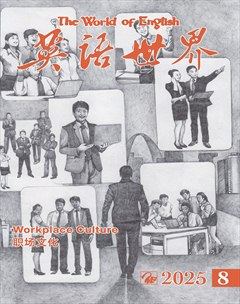In 1776, as they lined up in Philadelphia to sign the Declaration of Independence, the Founders attested quite literally to its final words, “We [mutually] pledge [to each other] our Lives, our Fortunes and our sacred Honor.” What exactly were their fortunes?
1776年,美国开国元勋们在费城依次签署《独立宣言》,他们也确确实实印证了宣言最后的那些话:“谨以我们的生命、我们的财产和我们神圣的名誉(彼此)起誓。”那么,他们的财产状况究竟如何呢?
A little over a century ago, Columbia University professor Charles A. Beard asserted that all the Founders were rich and in it for the money. But does Beard’s analysis hold up in the light of a modern investigation using financial records he did not possess?
一个多世纪前,哥伦比亚大学教授查尔斯·A.比尔德曾断言,开国元勋们全都富甲一方,且他们参与其中追求的乃是金钱。然而,一项现代调研利用了比尔德当时未掌握的财产记录,鉴于此,比尔德的分析还能站得住脚吗?
Examination of the Founders’ lives and their gains and losses through three turbulent decades of breaking away from Great Britain and building a new nation provides a much more nuanced picture.
美国从脱离英国到独立建国历经三十载,剖析开国元勋们在这段动荡岁月中的生活及其得失,能为我们展现更多的细节。
Some of the Founders were not rich. Samuel Adams, who first raised the alarm of growing Parliamentary pocket-picking of American colonists— “taxation without representation is tyranny”1 —was born to a Boston malt merchant who tried to set up a mortgage bank. The British not only shut it down but ordered the elder Adams to repay all the loans, bankrupting him. He could no longer afford his son’s expenses at Harvard. The future revolutionary wound up waiting on the tables of his wealthier friends—and hating the British.
并非所有的开国元勋都家财万贯。在英国议会不断向美国殖民地居民横征暴敛之时,塞缪尔·亚当斯率先发出警示——“没有代表权的征税就是暴政”。亚当斯出生于波士顿一位麦芽商之家。他的父亲曾试图建立一家抵押贷款银行,可英国人不仅关停了银行,还命令老亚当斯偿还全部贷款。老亚当斯因此破产,再也无法负担儿子读哈佛大学的费用。这位日后成为革命者的青年结果只能在餐桌旁为其富人朋友服务,心中充满了对英国人的愤恨。
His friend, John Hancock, born the son of an impecunious country parson, was adopted by his childless uncle, probably the richest merchant in New England. After completing Harvard, young Hancock learned the whale oil exporting business, at 26 taking over the firm and diversifying it by creating a network of stores and ships that made him even wealthier.
亚当斯的朋友约翰·汉考克出身于贫寒乡村牧师家庭,后来由其膝下无子的叔叔收养。他这位叔叔大概是新英格兰地区最富有的商人了。年轻的汉考克在哈佛大学完成学业后,学习了鲸油出口业务,26岁时接管了公司,他将商铺与航运连接起来,以此拓展公司业务,从而积累了更多财富。
The two men became the leaders of resistance to Britain’s tax policies, and when they fled British troops searching for them in Lexington, Hancock crammed the family fortune into a carriage to invest in the revolution. Turning to the chronically-disheveled Adams, he said, “You can’t go to Congress looking like that.” And he bought him a new suit.
亚当斯与汉考克成了反抗英国税收政策的领导者。





